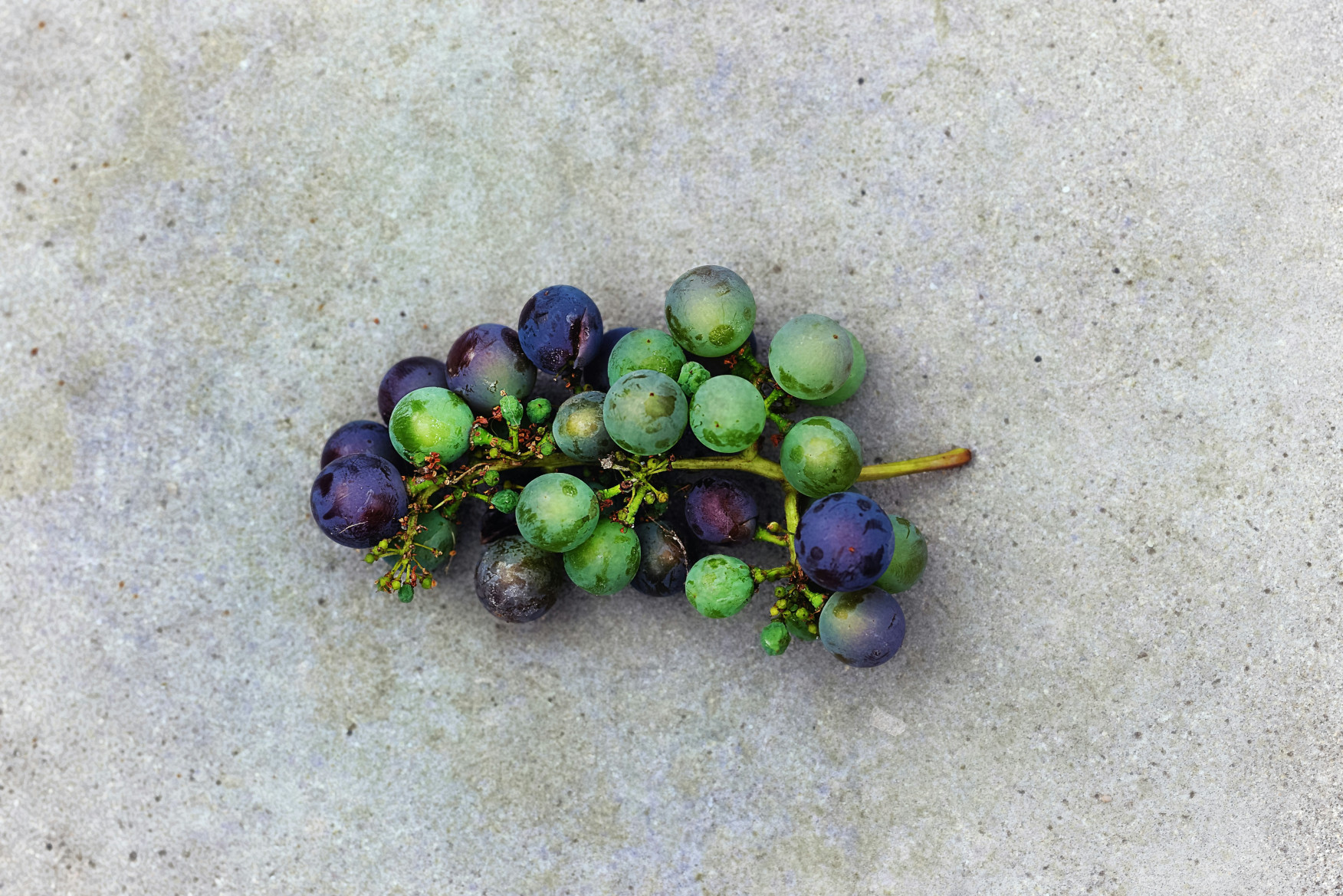
Why do we use Grape (Vitis Vinifera) Seed Oil?
Born from a byproduct of the wine making process, Vitis Vinifera (Grape) Seed Oil is a perfect example of a sustainable, potent, and highly effective skincare ingredient. As a key antioxidant in our ingredient glossary, this lightweight, fast-absorbing oil is celebrated for its incredible antioxidant content, making it a top-tier choice for protecting the skin from environmental damage.
What is Vitis Vinifera (Grape) Seed Oil?
Grape Seed Oil is a lightweight oil extracted from the seeds of grapes. What makes it a skincare superstar is its unique and powerful composition:
- Proanthocyanidins: This is Grape Seed Oil’s main claim to fame. It is an exceptionally rich source of these potent antioxidant compounds (also known as OPCs). Proanthocyanidins are considered to be more powerful antioxidants than both Vitamin C and Vitamin E.
- Linoleic Acid: Like Safflower and Sunflower oil, it has a high concentration of this Omega-6 essential fatty acid, which is a critical component of the skin’s protective barrier.
- Vitamin E: It also contains a good amount of this vital, fat-soluble antioxidant.
Source:
- National Institutes of Health (PubMed Central): Grape Seed Oil: A Potential Functional Food and a Nutraceutical Adjuvant – This recent (2022) and comprehensive scientific review in Food Science & Nutrition details the potent chemical composition of Grape Seed Oil, including its high levels of proanthocyanidins, linoleic acid, and Vitamin E, and discusses its antioxidant properties.
The Good: 3 Key Benefits of Grape Seed Oil in Creams
When formulated into a cosmetic cream, Grape Seed Oil acts as a protective, balancing, and barrier-supporting emollient.
1. It Provides Superior Antioxidant Protection
The proanthocyanidins in Grape Seed Oil are masterful at neutralizing a wide range of free radicals. These damaging molecules, generated by UV rays and pollution, attack skin cells and break down collagen, leading to premature aging. By fighting this oxidative stress, Grape Seed Oil helps to:
- Protect the skin from environmental damage.
- Prevent the visible signs of aging, like fine lines and wrinkles.
- Keep the skin looking healthy and youthful.
2. It’s an Excellent Lightweight Moisturizer for Oily & Acne-Prone Skin
Grape Seed Oil is a very thin, “dry” oil that absorbs into the skin quickly without leaving a greasy residue. It has a low comedogenic rating, meaning it is unlikely to clog pores. This, combined with its high linoleic acid content, makes it an ideal choice for moisturizing oily, combination, and acne-prone skin types.
Source:
- National Institutes of Health (PubMed Central): Anti-Inflammatory and Skin Barrier Repair Effects of Topical Application of Some Plant Oils – This scientific review discusses oils like Grape Seed for their high linoleic acid content, which is essential for skin barrier function and is known to be beneficial in topical applications for acne vulgaris.
3. It Strengthens and Supports the Skin Barrier
The high concentration of linoleic acid makes Grape Seed Oil highly effective at reinforcing the skin’s natural barrier. A strong, healthy barrier is essential for locking in moisture and keeping out bacteria and irritants.
The Bad: Are There Any Considerations?
The effectiveness and safety of Grape Seed Oil are highly dependent on how it is produced.
- Extraction Method is Everything: This is the most critical point. Because grape seeds contain a small amount of oil, extracting it can be difficult.
- Cold-Pressed: This is the high-quality method, where the oil is extracted mechanically without high heat. It preserves the delicate antioxidants and nutrients. This is the only type that should be used in quality skincare.
- Solvent-Extracted: This is a cheaper, high-yield method that uses chemical solvents (like hexane) to extract the oil. This process can destroy the beneficial compounds and potentially leave trace amounts of solvents in the final product.
- It’s a Delicate Oil: Like other oils high in polyunsaturated fats, Grape Seed Oil is more susceptible to oxidation (going rancid) than more stable oils. It needs to be packaged in a dark, airtight container to protect its potency.
- May Not Be Rich Enough for Very Dry Skin: While it’s a good barrier supporter, its lightweight nature may not feel nourishing enough for those with extremely dry or mature skin, who might prefer a richer emollient like Shea Butter.
The Verdict
Vitis Vinifera (Grape) Seed Oil is a top-tier antioxidant oil that offers powerful protection from environmental stressors. Its lightweight, non-comedogenic texture makes it an exceptional choice for balancing and moisturizing normal, combination, oily, and acne-prone skin types. When you see it in our products, you can be confident it is the high-quality, cold-pressed variety, chosen for its ability to keep your skin protected, clear, and healthy.
Frequently Asked Questions about Grape Seed Oil
Yes, it is considered one of the best oils for oily and acne-prone skin. It is lightweight, fast-absorbing, and non-comedogenic, meaning it will not clog pores. Its high linoleic acid content can also help to balance sebum.
Proanthocyanidins (also called OPCs) are the superstar antioxidant compounds in Grape Seed Oil. They are incredibly potent at neutralizing a wide range of free radicals, helping to protect the skin from the environmental damage that leads to premature aging.
The proanthocyanidin antioxidants in Grape Seed Oil are scientifically considered to be more powerful free-radical scavengers than Vitamin C and Vitamin E on their own. However, these vitamins work best as a team, and Grape Seed Oil also naturally contains Vitamin E, making it a fantastic all-around protective ingredient.
Find Grape Seed Oil in Our Products
(will be updated soon)
Other sources used for this article:
- National Institutes of Health – nih.gov and
National Institutes of Health – nih.gov and
National Institutes of Health – nih.gov and
National Institutes of Health – nih.gov - Nikura
- Anderson Intl
- AG1
- Healthline
- Skin Type Solutions
- University of Alabama at Birmingham
- H and B
- Truly Beauty
- Divine Dermatology
- Luxe Joie
